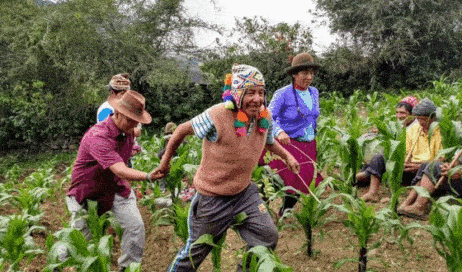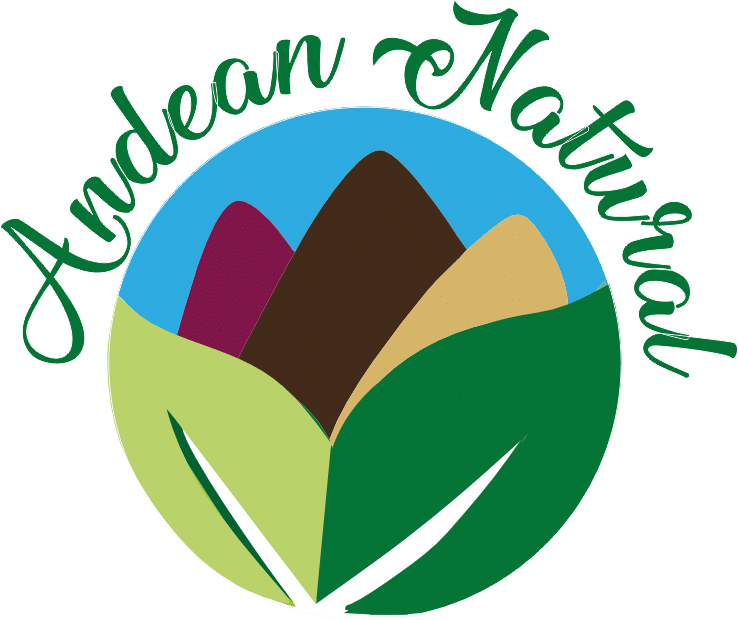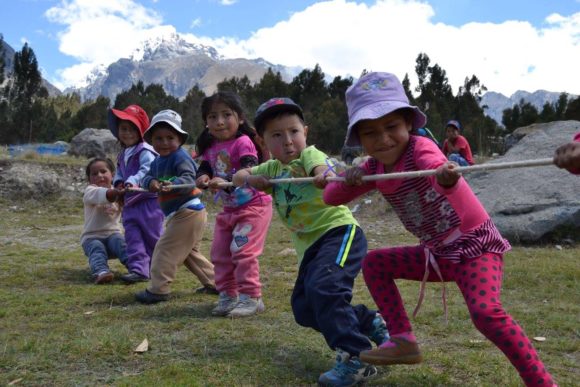
Can you imagine how Christmas was celebrated a long time ago? We are not referring to the properly Christian Christmas of only 2,000 and a few more years. We are referring to an annual party capable of bringing together all the members of a family, an ethnic group, a community. At the dawn of humanity when sprouts of civilization were barely appearing on the continents.

In the Andes of South America, the Incas who came from much older ethnicities and cultures such as the Wari, Quechuas, Aymaras, among others, held what to this day are impressive celebrations every year at the same time of year. Studies reveal that more than 3 thousand years ago the original populations in the epicenter of what we now know as Tahuantinsuyo carried out rituals in the form of celebrations called “Qhapaq Raymi”, a festival full of music, dances and pre-Hispanic rites that are practiced generation to generation millennia ago.
The importance of Qhapaq Raymi is not only in its socio-cultural value but also gives us a link to interrelate with our environment and nature. This festival is the most important among the four celebrated during the solstices and equinoxes, because it fits perfectly into the corn sowing cycle which, as we know, governed the order in the administration in the ancient and extensive Inca empire. It is during this period that what some consider to be the primary step is carried out, which is the preparation of the land for planting corn, an essential basis for the diet of the native populations of Mesoamerica. It is known that the festival itself was a celebration of the 4 elements of the universe, fire, water, wind and earth.These festivals are currently carried out by the apus, characters who represent hierarchies and who have prevailed like the Qhapaq Raymi himself over time, the colonization and extirpation of idolatries carried out in part of the last 5 centuries. You can imagine that these festivals are very difficult to celebrate due to the logistical work involved in feeding and drinking both locals and visitors. These towns can easily double the number of people on festival days, which leads to a huge consumption of resources. . Very unlike the towns and cities where Christianity has been able to impose itself, these Christian celebrations are of lesser magnitude, they are organized and carried out by Godfathers or Stewards, all of this frames a phenomenon of syncretism that arose after some centuries of colonialism and that has managed to encompass and share equally high Andean towns and cities.
A mestizo chronicler Guamán Poma de Ayala tells us that during these festivals there was a lot of eating and drinking, the Inca himself drank a mixture of crushed coca leaves with chicha, a drink made from corn served in a ceremonial Kero. He also describes its superiority compared to other festivals such as Inti Raymi, Quilla Raymi or Coya Raymi, he even describes duels between residents and what today we can define as takanakuy.
The Qhapaq Raymi as such takes place from December 21 and its celebration extends until the 27th of the same, this is without a doubt a very particular way of living Christmas this Qhapaq Raymi in the middle of the Andes of South America, in cultures so as old as their ancestors themselves are. Among the particularities of Christmas in the Andes is the practice of Takanakuy which is a kind of martial art practiced in the heights of Cusco more specifically in the province of Chumbivilcas, which consists of the organization of confrontations between residents or relatives of one against one; These duels are carried out with the strict purpose of putting an end to disputes and quarrels of a common order, but we will tell this and other stories later in other blogs that we will publish soon, during some trips that we will make to the interior of the Andes with in order to bring you the best quality maca, harvested and dried in season high in the Andes of central and southern Peru.
We can only thank you for having come this far on behalf of the Andean team and wish you happy holidays, wherever you are, practicing the holidays of your ancestors, success in work, family and health.
Finally, to finish, we have thought it appropriate to give you a coupon with a 20% discount on your next purchase, even on your new products and the usual ones!
Andean Natural



